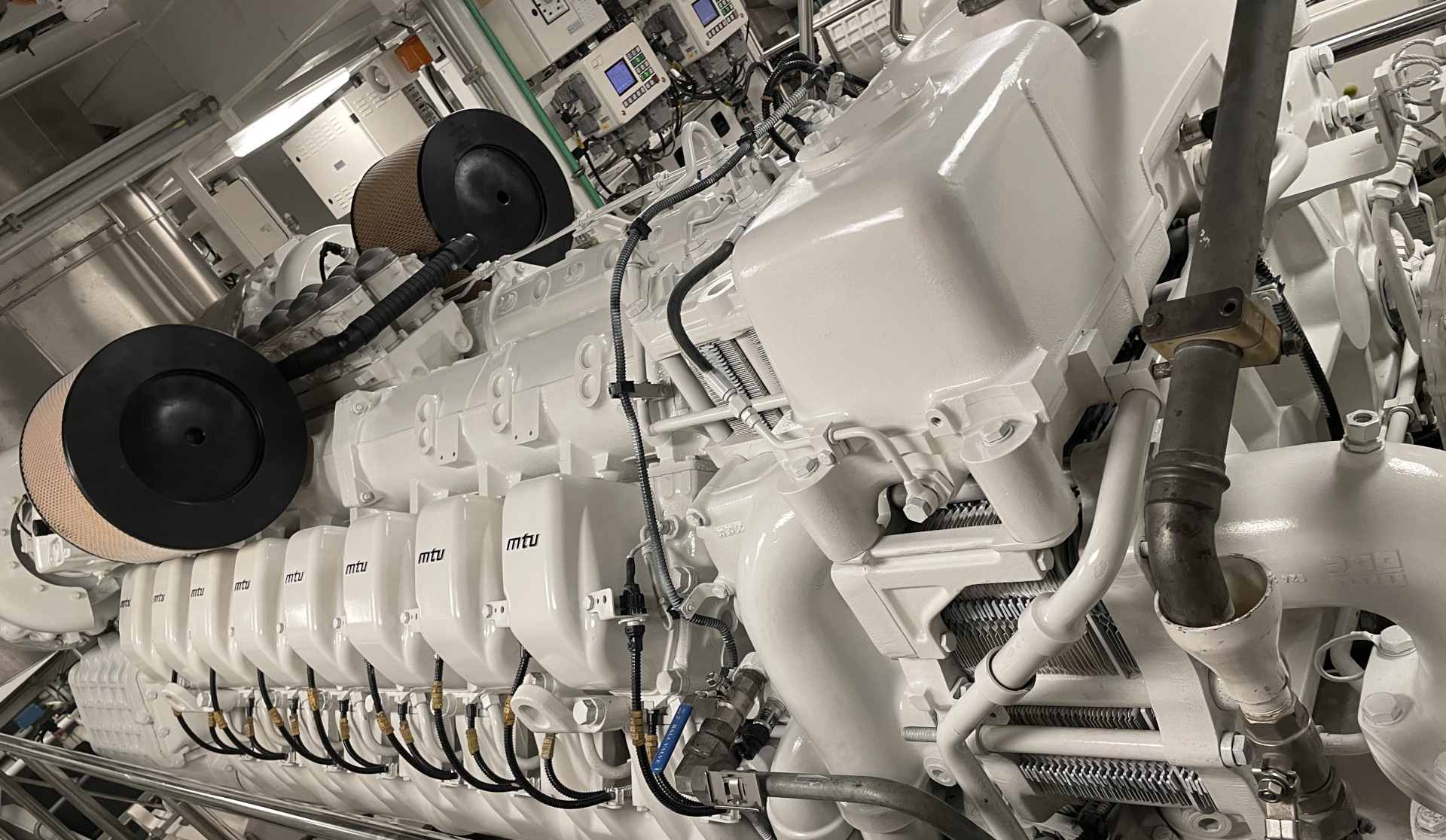
HOW TO PROPERLY PREPARE YOUR YACHT’S ENGINE FOR THE WINTER?
As the fresh air of autumn begins to be felt and the sailing season draws to a close, yacht owners should start thinking about preparing their vessels for the colder months ahead.
Properly winterizing your yacht’s engine is a crucial step to keeping your vessel in top condition and ready to sail as soon as warmer weather returns.
Neglecting this important part of maintenance can lead to expensive repairs and a delayed start to your next adventure.
IMPORTANCE OF ENGINE PREPARATION FOR WINTER
Water left in the engine, cooling systems and other components can freeze and expand in cold weather which can lead to cracking or damage to engine parts including the engine block and cooling system.
Moisture left in the engine and fuel systems can lead to rust and corrosion. Engine preparation usually involves draining the water and adding antifreeze which can help protect metal parts from corrosion.
Fuel left in the system for a long time can degrade and form deposits which can clog fuel lines, filters and injectors. Using a fuel stabilizer during the winterization process helps prevent fuel degradation.
Proper preparation ensures that your yacht’s engine will be in good working order when you are ready to use it again. This reduces the risk of unexpected breakdowns and maintenance issues when the sailing season starts again.
OIL AND OIL FILTER CHANGE
Used oil often contains impurities such as water, acids and metals that can cause corrosion. Replacing old oil with fresh oil removes these harmful substances protecting engine components during the long period of inactivity over the winter.
Oil can degrade over time losing its effectiveness as a lubricant. By replacing the old oil with a new one you ensure that the oil retains its full properties during the winter storage period.
FUEL FILTER CHANGE AND FUEL STABILIZATION
A clean fuel filter ensures that only clean fuel reaches the engine which is critical to maintaining optimal engine performance and efficiency. This is especially important after the engine has been idle for several months as any remaining contaminants in the old filter can cause problems when you start the engine again.
Fuel can degrade over time especially when it sits unused for long periods. Gasoline can start to break down and form deposits. The use of a fuel stabilizer prevents this degradation ensuring that the fuel remains fresh and efficient when you start using the yacht again.
DRAIN THE ENGINE OR USE ANTIFREEZE
Water left in the engine can freeze when temperatures drop. As water freezes it expands. This expansion can cause serious damage to engine components such as cracking the engine block, damage to the cooling system and burst hoses or connections. Draining water or using antifreeze prevents this expansion and subsequent damage.
Antifreeze usually contains corrosion inhibitors. By using antifreeze instead of plain water you can protect the internal components of the engine from rust and corrosion which can occur when the engine is not in use for a long time.
CLOSE THE ENGINE VENTS
Moisture is the engine’s enemy especially in cold weather. If water enters the engine openings it can cause rust and corrosion of metal parts. Closing these vents helps keep moisture out protecting the engine from potential damage.
During the winter months small animals and insects often look for warm and sheltered places to nest. Engine compartments can be attractive to them. Closing the hatch prevents animals from entering and potentially causing blockages or biting important wires and components.
Wind can carry leaves, dirt and other debris into engine parts if the vents are not closed. Debris can clog filters, impede airflow and cause other operational problems. By closing the opening you prevent foreign materials from entering the engine compartment.
RINSING WITH FRESH WATER
Salt water is extremely corrosive and can cause significant damage to the internal parts of the yacht’s engine. Flushing the engine with fresh water removes salt, minerals and other corrosive elements that can build up over time. This helps prevent rust and corrosion extending the life of the engine.
Over time debris such as sand, silt and marine organisms can build up in the cooling system. Flushing with fresh water helps remove these contaminants ensuring the canals are clear and free. This is important to maintain optimal engine performance and prevent overheating.
CHECK THE EXHAUST SYSTEM
Water can remain in the exhaust system and when temperatures drop this water can freeze. Ice expansion can cause pipes and other components to crack or break leading to costly repairs.
Preparing for winter is a good time to inspect the exhaust system for possible leaks, cracks or other damage. Addressing these issues before they get worse can save time and money when the yacht is ready for use again.
Debris, dirt or salt can accumulate in the exhaust system over time. Cleaning and inspecting your exhaust system during winter prep helps prevent blockages that could restrict airflow or cause back pressure problems.
LUBRICATE THE GEARS AND ELECTRIC STARTER MECHANISM
The gears and starter mechanism must move freely to function properly. Lubrication helps keep these parts moving by reducing friction which is especially important after periods of inactivity. This ensures that when you start your engine again after the winter everything runs smoothly.
In cold temperatures insufficiently lubricated parts can freeze or stick together. Lubrication helps prevent this by maintaining a thin layer of oil or grease between moving parts ensuring their functionality even at low temperatures.
CONCLUSION
Proper winterization of your yacht’s engine is essential to ensure the longevity and reliability of the vessel. By following the above steps such as thorough cleaning, changing the oil and filter or refueling with added stabilizer you significantly reduce the risk of damage during the cold months.
Regular maintenance and careful preparation will not only allow you a peaceful winter’s sleep, but will also ensure that your yacht is ready for new adventures as soon as the warm weather arrives. Remember, consulting with professionals and following the manufacturer’s recommendations is always a wise decision to ensure the optimal condition of your vessel.
